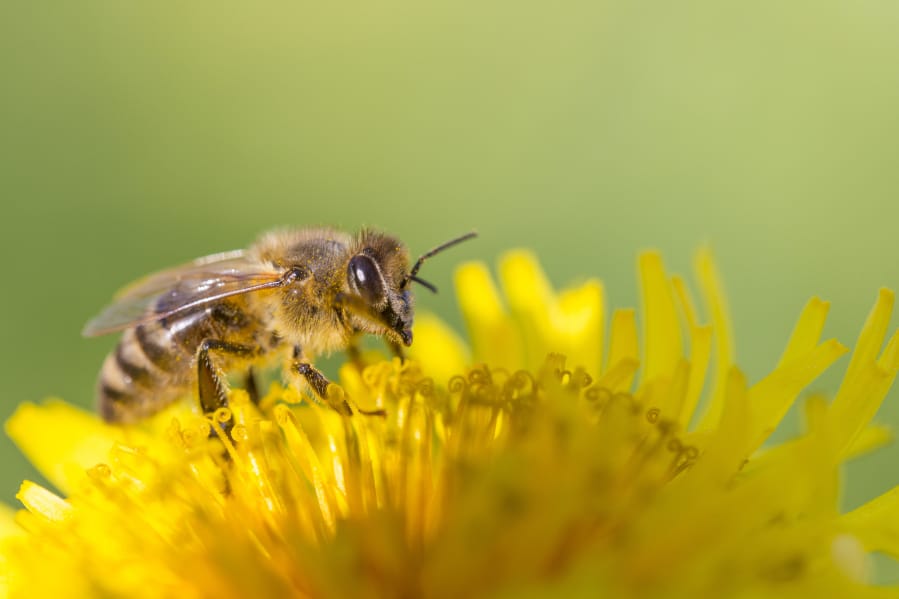OTHELLO — There are no bees here yet.
But eventually at this former Monsanto lab east of Othello, there will be. Lots of them.
“They are all in California and should arrive soon,” said Scott Weybright, spokesman for the Washington State University College of Agricultural, Human, and Natural Resource Sciences. “It’ll take about a year to build up the colonies.”
But that didn’t stop dignitaries and donors from gathering Friday afternoon to cut the ribbon and inaugurate WSU’s new Honey Bee and Pollinator Research, Extension and Education Facility on 50 acres just south of the Port of Othello in the middle of what may be the most pollinator-dependent agricultural region in the United States.
“I’m really excited about this,” said Rep. Dan Newhouse, R-Yakima. “Here we are at the center of the state, the heart of agriculture, what better place to put a honey bee research center.”
“Where would we be without the honey bee?” Newhouse said. “I’m looking forward to great things coming out of this place.”
Chris Hiatt, co-owner of Hiatt Honey in Ephrata and vice president of the American Honey Producers Association, said the center and the research it would enable would be important in helping beekeepers stem colony collapse disorder and the honey bee’s persistent pest, the varroa mite.
“It’s an important national food security issue,” Hiatt told a packed crowd in the center’s warehouse. “I wouldn’t be here if it weren’t for the losses. We lost half our hives in 2017, the highest losses since 2004.”
“If it weren’t for those losses, we wouldn’t need this facility,” he said.
In fact, Hiatt compared the researchers who work at the new facility to soldiers in a war, calling them “the boots on the ground” of applied science that could help beekeepers stem the losses.
Washington State Beekeepers Association President Kevin Oldenburg presented the center with a $30,000 donation, and said the industry remains committed to supporting research efforts to assist beekeepers.
“We celebrate the collaboration between the beekeepers association and WSU,” Oldenburg said. “We were very hopeful this would happen and we are grateful to all the major donors.”
WSU raised over $3 million to get the facility up and running, and is looking to raise an additional $1 million to expand its apiculture — beekeeping — programs.
Among the things the center is expected to fund will be an improved bee breeding program, alternative ways to improve bee health, and “a major project” on pollinating blueberries and small tree fruit, said Steve Sheppard, WSU professor of pollinator ecology.



